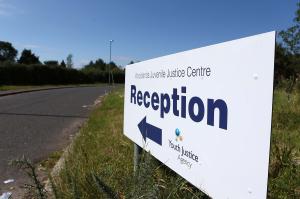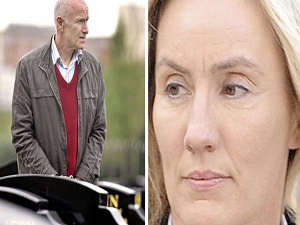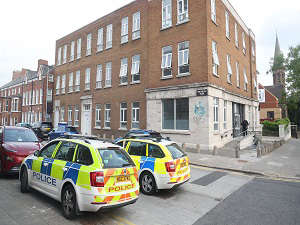
By Q Radio News
Concerns have been raised at the high proportion of Catholic boys in Northern Ireland's Juvenile Justice Centre.
The Justice Watchdog has also found the Woodlands Facility in Bangor is still being used when there's nowhere else for children with complex needs to go.
However,
Chief Inspector, Brendan McGuigan says the centre is the "envy" of its neighbours in England and Wales.
Declan McGeown is from the Youth Justice Agency.
Inspectors from Criminal Justice Inspection Northern Ireland (CJI) found a child centred ethos in place at the JJC and reported that good progress had been made towards implementing four strategic recommendations for improvement made in 2015.
“The JJC is without doubt, the jewel in the crown for the Youth Justice Agency (YJA) and Department of Justice (DoJ) and is a centre which is the envy of neighbouring jurisdictions.
It is a facility which has made steady progress despite funding and staffing reductions which have occurred,” said Brendan McGuigan, Chief Inspector of Criminal Justice in Northern Ireland.
“With the development of early intervention and diversionary programmes there are now fewer children entering the criminal justice system.
But for those young people who are required to be detained in a secure setting, the JJC provides an effective means of keeping them safe while delivering a progressive, child-centred regime,” said Mr McGuigan.
The inspection identified the majority of the children admitted to the JJC were 16 to 17-year-old boys from a Catholic background, many of who were admitted to the Bangor facility multiple times.
“While the JJC does not have control over the children who are sent there, it was concerning that 76% of children admitted to the centre in 2016-17 were from a Catholic background – an increase of 19% compared to the figures in 2013-14.
“Inspectors believe it is important for the JJC management to understand the reasons for this disparity, and would encourage them to work with other statutory agencies including the police, prosecution and court services, to seek to understand why this is happening and how it can be addressed,” said Mr McGuigan.

Pictured: Brendan McGuigan


 Schools may be instructed to set up SEN provision amid crisis over places
Schools may be instructed to set up SEN provision amid crisis over places
 Double killer Hazel Stewart fails in bid to have sentence reduced
Double killer Hazel Stewart fails in bid to have sentence reduced
 Omagh inquiry told pace of disclosure ‘must increase’
Omagh inquiry told pace of disclosure ‘must increase’
 Man, 34, appears in court charged in relation to attack on Islamic Centre
Man, 34, appears in court charged in relation to attack on Islamic Centre
 Politicians urge calm after second night of Londonderry violence
Politicians urge calm after second night of Londonderry violence